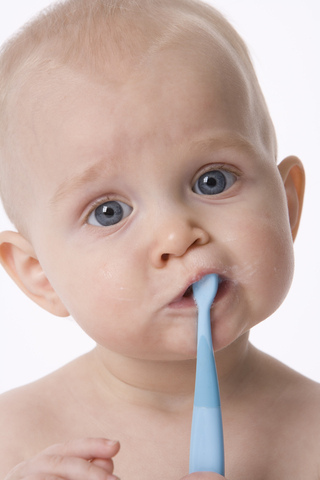When should I begin brushing my baby's teeth?
January 18th, 2023

One question our team at Pasternack Pediatric Dental hear all the time is, “When should I start brushing my baby’s teeth?”
You should begin regular cleanings even before your baby has teeth. After each breast feeding (or bottle-feeding) use a clean, damp washcloth to gently rub your baby’s gum tissue. You may wrap the material around one finger to make it easier to remove any food bits from your baby’s mouth.
When your baby’s first tooth comes in, switch to a baby toothbrush. Look for special baby toothbrushes in your drugstore; they have just a few bristles and are very soft. There are even brushes shaped like finger puppets that fit over the tip of your pointer finger! All you need at this point is water (no toothpaste yet).
After a few more teeth appear, you may start using toothpaste, but you only need a tiny bit, and make sure it doesn’t contain fluoride for the first two years. From the beginning, have your little one practice spitting the toothpaste out after brushing. That way, he or she will already have the good habit of spitting when you switch to fluoride toothpaste, which should never be swallowed.
If you have any questions about caring for your baby’s teeth, or to schedule an appointment at our convenient Vorhees office, please contact Pasternack Pediatric Dental.



